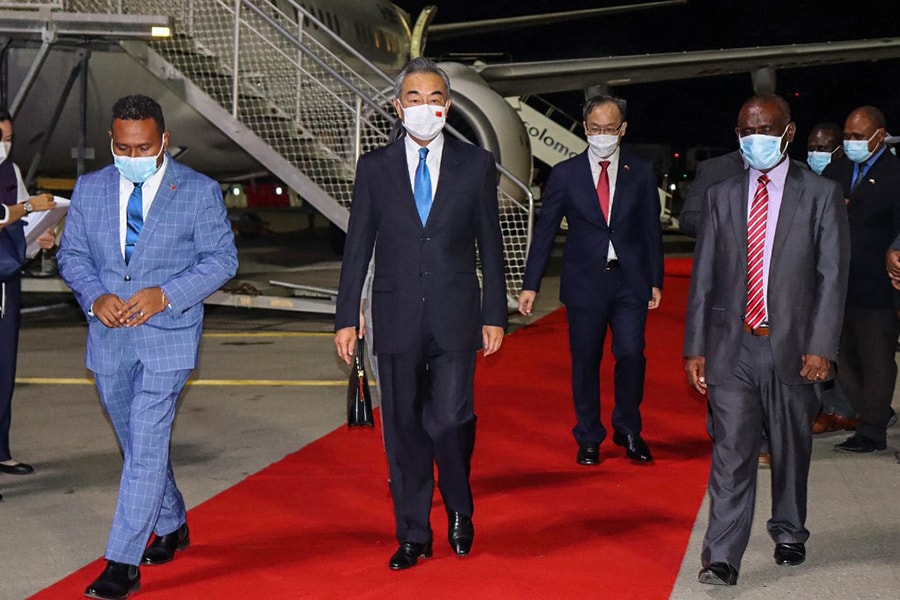
China seeks sweeping regional deal with Pacific Island countries
China is pursuing a regional agreement with Pacific island nations that would expand Beijing's role in policing, maritime cooperation and cybersecurity while offering scholarships for more than 2,000 workers and young diplomats
 This picture taken on May 25, 2022, shows Solomon Island's Foreign Minister Jeremiah Manele (L) and Chief Protocole Walter Diamana (R) escorting Chinese Foreign Minister Wang Yi (C) upon his arrival at the Henderson International Airport in Honiara. Image: STRINGER / AFP
This picture taken on May 25, 2022, shows Solomon Island's Foreign Minister Jeremiah Manele (L) and Chief Protocole Walter Diamana (R) escorting Chinese Foreign Minister Wang Yi (C) upon his arrival at the Henderson International Airport in Honiara. Image: STRINGER / AFP
SYDNEY, Australia — China is pursuing a regional agreement with Pacific island nations that would expand Beijing’s role in policing, maritime cooperation and cybersecurity while offering scholarships for more than 2,000 workers and young diplomats, according to documents obtained by The New York Times.
Drafts of the deal were sent to 10 Pacific countries in advance of a Pacific tour by China’s foreign minister, Wang Yi, who is scheduled to meet with regional leaders next week in Fiji.
Covering a range of issues, the documents appear to be a joint communiqué that Beijing wants the countries to adopt. They offer a detailed outline of how Beijing seeks to win friends and gain greater access to the island chains that have long played a strategic role in Asia’s geopolitical contests.
The visit and the agreement both seem aimed to counter U.S. efforts to strengthen alliances in Asia.
Wang’s first stop is the Solomon Islands, where he is scheduled to appear Thursday to sign a security pact that has already put the Americans and the region on edge. And he is visiting within days of President Joe Biden’s Quad meeting in Tokyo with leaders of Australia, Japan and India, where the focus was on containing China’s regional influence.
©2019 New York Times News Service







